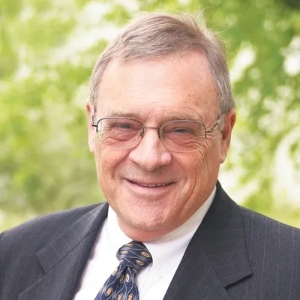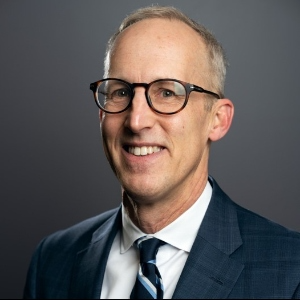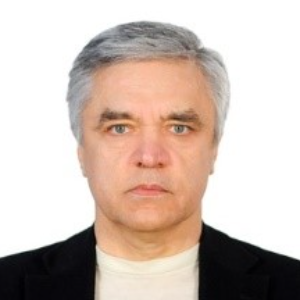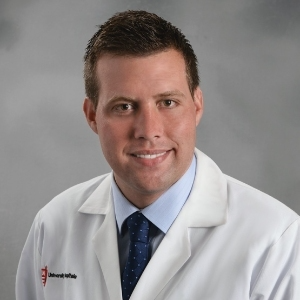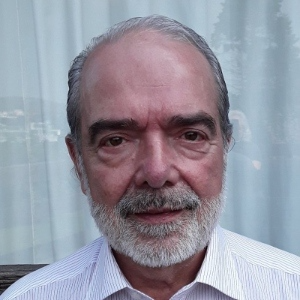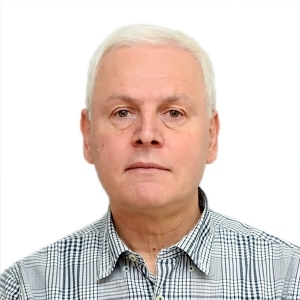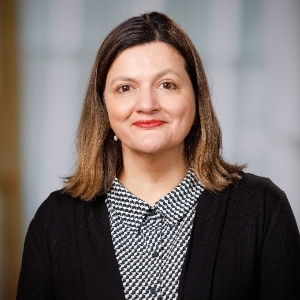Welcome Message
Dear Speakers, Delegates, Exhibitors & Sponsors
It's my great pleasure to invite you on behalf of the Heart Congress 2025’s Organizing Committee, and to invite you to attend “8th Global Cardiovascular Research and Clinical Cardiology” to be hosted on August 21-22, 2025 at Vancouver, Canada..
Heart Congress 2025 is a premier international conference spanning two days, offering the latest advancements, research insights, clinical guidance, and policy discussions for professionals in Cardiovascular Research and Clinical Cardiology. This event provides a unique opportunity to connect with global experts, exchange knowledge, and engage with colleagues while enjoying an enriching experience.
Renowned speakers from around the world will present, analyse, and debate ground-breaking discoveries and scientific achievements that will shape the future of Cardiology and Cardiovascular Medicine.
We very much look forward seeing you in Vancouver, Canada on August 21-22, 2025. We hope you'll join us to make this conference a memorable event!
Thanks & Regards
Organizing Committee
About Conference
Conference Series LLC Ltd proudly invites all the participants and sponsors across the globe to attend the “8th Global Cardiovascular Research and Clinical Cardiology” during August 21-22, 2025 at Vancouver, Canada.
The main focus and theme of the conference is “Insights of Cardiology & Healthcare”. Heart Congress 2025 strives to bring renowned Cardiologists, Cardiovascular visitors ranging from Researchers, Academicians and Business professionals, who are working in this field, students and Business delegates under a single roof providing an opportunity to share the knowledge and scientific progress in the field of Cardiovascular Research and Clinical Cardiology shaping the future research.
Our conference includes a well-balanced line up of speakers, covering both broad and specific topics of interest. Our aims to provide cardiac physicians, specialists, nurses, technologists and anyone professionally involved in Cardiovascular Disease with an opportunity to learn about the complexity of the disease, discuss interventional procedures, look at new and advanced cardiac practices and their efficiency and efficacy in the treatment of various cases, and understand local realities and practical constraints in improving patient-care. The Heart Congress 2025 will be organized around the theme " Insights of Cardiology & Healthcare ".
Conference Series LLC Ltd organises 1000+Conferences Every Year across USA, Europe & Asia with support from 1000 more scientific societies and Publishes 900+Open access Journals which contains over 60000 eminent personalities, reputed scientists as editorial board members.
Why to attend?
The Cardiovascular Research conference interrelates with members across the globe focused on learning about Global Cardiovascular Research and Clinical Cardiology and its specialties. This is the sole best opportunity to reach the major participants. Sharing the knowledge and demonstrations, information and B2B meetings with industrialists and potential clients to make a splash with innovative products live and brand recognition at this event. World prominent speakers, the most recent techniques, and the cutting-edge updates in Cardiovascular Medicine and Cardiac Surgery are hallmarks of this conference.
Heart Congress 2025 will join world-class teachers, scientists, Surgeons and cardiologists to discuss methodology for ailment remediation for heart, Thoracic region, Electrocardiography, Heart Failure, Nuclear Cardiology and stroke.
Target Audience:
-
General Cardiology
-
Interventional Cardiology
-
Cardiac Surgeons
-
Heart Failure
-
Health-care
-
Clinical EP
-
Internal Medicine
-
Pediatric Cardiology
-
Preventive Cardiology
-
Cardio-thoracic Surgery
-
Cardiology Imaging
-
Emergency Medicine
-
Cardiac Oncology
-
Pharmacology
-
Echocardiography
-
Cell Biology
-
Vascular Medicine
-
Physiology
-
Hypertension
-
Pharmacy
-
Cardio Vascular Medicine
-
Cardiovascular and Thoracic Surgery Instruments
Sessions & Tracks
Track 1: Cardiovascular Toxicology and Pharmacology
Cardiovascular Toxicology is the discipline which especially targets to the negative outcomes on the heart or blood systems that end result from publicity to poisonous chemicals. It elaborates security facts of hazardous consequences of new cardiovascular medicines. Pharmacology of vascular endothelium offers with changes of endothelial cells and the vasculature play an integral section in the pathogenesis of a large range of the most dreadful of human diseases, as endothelial cells have the crucial function of taking part in the preservation of patent and practical capillaries.
Track 2: Interventional Cardiology
Andreas Gruentzig is recognized as the father of interventional cardiology after the development of angioplasty through interventional radiologist Charles Dotter which is primarily offers with the catheter based totally cure of structural heart diseases. A large quantity of methods can be accomplished on the heart by way of catheterization the place the most frequently consists of the insertion of a sheath into the femoral artery and cannulating the coronary heart under X-ray visualization (fluoroscopy). For cannulation, the radial-artery also can be used and this approach having numerous blessings which consist of the accessibility of the artery in most patients, the easy manage of bleeding even in anticoagulated patients, the enhancement of relief due to the fact patients are ble to sit down and stroll immediately following the procedure, and the near absence of clinically substantial sequelae in patients with an everyday Allen test. In the other facet to this methodology include spasm of the artery & pain, lack of ability to use larger-catheters required in a range of procedures and additionally more radiation exposure.
Track 3: Cardiac Nursing
Cardiac nursing is a nursing strong point that works with patients who suffer from a range of conditions of the cardiovascular system. Cardiac nurses assist treat stipulations such as unstable angina, cardiomyopathy, coronary artery disease, congestive heart failure, myocardial infarction and cardiac dysrhythmia below the course of a cardiologist. Cardiac nurses operate postoperative care on a surgical unit, stress check evaluations, cardiac monitoring, vascular monitoring, and fitness assessments. Cardiac nurses work in many special environments, including coronary care gadgets (CCU), cardiac catheterization, intensive care units (ICU), operating theatres, cardiac rehabilitation centres, clinical research, cardiac surgical treatment wards, cardiovascular intensive care devices (CVICU), and cardiac scientific wards.
Track 4: Cardiovascular Surgery
Cardiovascular surgical operation is additionally known as two thoracic surgical operation which is operated on the heart or extraordinary vessels with the aid of cardiac surgeons and it two is the field of medication concerned in surgical treatment of organs internal the thorax. There are 5 types of cardiac surgical procedure 1) Open coronary heart surgical procedure 2) Modern beating-heart surgical procedure 3) Heart transplant 4) Coronary artery ignore grafting 5) Minimally invasive surgical procedure and two surgeries are performed to deal with complexity of ischemic coronary heart disease, right congenital heart disease, or deal with valvular coronary heart sickness from a number of motives consisting of endocarditis, rheumatic coronary heart disease and atherosclerosis and advancement of cardiac surgical operation and cardiopulmonary bypass methods has significantly reduced the mortality costs of these procedures. The surgical operation requires postoperative care to avoid complications. Laceration care is wanted to avoid contamination and minimize scarring. Swelling and loss of appetite are common, as referred to Coronary artery ignore grafting (CABG) is the most frequent kind of coronary heart surgery. CABG improves blood drift to the heart.
Track 5: Anaesthesia and Cardiac Image
General anaesthesia for cardiac MRI is ruled by means of similar principles for any anaesthetic approach in youngsters with heart disease. High-risk imaging refers to imaging in patients with medical or health-related risks, imaging with equipment-related risks, and procedure-related dangers such as MRI-guided surgery, minimally invasive procedures. MRI can be performed in sufferers who have undergone previous cardiac surgery. Absolute contraindications include patients with pacemakers and defibrillators. Two A Deep sedation or universal anaesthesia is indicated in neonates, babies and small youth for MRI. The challenges all through MRI include limited get right of entry to patient and equipment, low ambient temperature with danger for hypothermia and a noisy unfamiliar surroundings with the faraway location from the operating room. Anaesthetic care for magnetic resonance imaging (MRI) as reasonable sedation, deep sedation, monitored anaesthesia care, general anaesthesia, or ventilatory and vital care support.
Track 6: Molecular Cardiology
Molecular cardiology on the whole pursuits to practice molecular biology practices for the diagnosis, prevention, therapy and mechanistic investigation of cardiovascular ailment is a novel and speedy developing place of cardiovascular medicine. Being an emerging field, it has modified conceptual questioning of disease-etiology, pathophysiology and cardiovascular improvement. It has launched a promising course for perception and regulating cardiovascular disease. Scientists are nearer to curing coronary heart illnesses that have been notion to be incurable 20 years in the past with the fast development and software of molecular biology techniques. To advise the progression of stem mobile phone therapy and gene therapy for heart diseases, needless to say there is a necessity for thorough appreciation of the molecular mechanisms of cardiovascular diseases.
Track 7: Congenital Heart Disease
Congenital coronary heart sickness is an abnormality which is existing in the heart by way of birth. Abnormal development that takes place in the coronary heart and in the circulatory system earlier than beginning ordinarily causes Cardiac abnormalities. Abnormal development can be befallen by a number of factors, together with contamination and taking positive capsules by using the mom at some point of pregnancy. Some congenital cardiac abnormalities are genetic and may also be transmitted as autosomal or sex-linked traits.
Track 8: Open-Heart Surgery
Open-heart surgical treatment is any kind of surgical treatment where the chest is cut open and surgical procedure is executed on the muscles, valves, or arteries of the heart. Coronary artery pass by grafting is frequent kind of coronary heart surgical operation which is performed on adults. During this kind of surgery, a wholesome artery/ vein is grafted to a blocked coronary artery. This permits the grafted artery to skip the blocked artery & convey clean blood to the heart. Open-heart surgical procedure is additionally termed as usual heart surgery. Now days many new coronary heart techniques can be carried out with only small incisions, no longer huge openings.
Track 9: Echocardiography & Cardiac Imaging
Echocardiography, additionally called an echo take a look at or coronary heart ultrasound, is a check that takes “moving pictures” of the coronary heart with sound waves. It’s not surgery. Echocardiography uses widespread two-dimensional, three-dimensional, and Doppler ultrasound to create pictures of the heart. It is one of the most widely used diagnostic exams in cardiology. It can furnish a wealth of beneficial information, including the measurement and form of the coronary heart (internal chamber dimension quantification), pumping capacity, and the region and extent of any tissue damage. Echocardiography can assist to discover cardiomyopathies, such as hypertrophic cardiomyopathy, dilated cardiomyopathy, and many others.
Cardiovascular imaging is a central element of Cardiology. Cardiovascular imaging is the motion or manner of producing a photo especially of a section of the physique (Heart) by using radiographic techniques. It interprets pass sectional imaging studies of the heart and vascular system. Standard imaging checks consist of echocardiography (Echocardiography), chest x-ray, CT, MRI, and more than a few radionuclide strategies (Radionuclide Imaging). ‘Conference collection LLC Ltd teams with CED, a Joint Accreditation Provider, as Joint Providers of CME Credits for the Cardiology Meetings consisting of physicians, cardiologists, cardiac surgeons, scientists, professors and young researchers
Track 10: Clinical Case reports on cardiology
A clinical case record on Cardiology gives a splendid conference for all cardiologists by rendering their important clinical instances of late occurrence. Studying from medical instances offers treasured trip for clinicians, college students and paramedical personnel -members. Rare medical reports and stipulations observed through the modern-day methods of examination are energized. Moreover, studying diagnostic strategies from scientific cases and the interpretation of signs is tremendous to instruct and burgeon the notion methods which are being used in the medical field.
Track 11: Current Research in Cardiology
Cardiology Conferences promotes the cognizance against Risk issue modification about the heart diseases. Prevention, administration and cure of the cardiovascular ailments can be made by means of providing the cardiovascular services. It normally reduces untimely loss of life in humans with cardiovascular sickness risk. By focussing on the food regimen and life-style interventions principally the preliminary treatment of cardiovascular disorder can be done.
It’s more probable to acquire tremendous cure if the sickness is diagnosed at its early stages. Analysis of ethnic and socio-economic variations in coronary heart diseases and risks associated with it.
Track 12: Hypertension
High blood strain is otherwise recognised as hypertension, is a severe medical condition. When the pressure of the blood pumping thru your arteries is too strong, it usually happens. Heart pushes blood through your arteries to the rest of your body when it beats. Your blood pressure goes up, when the blood pushes more difficult against the walls of your arteries. In a day your blood pressure may also be special at unique times. When you first wake up, after you exercise, or when you are underneath stress, it is usually higher. It is ordinary having greater blood strain for brief quantities of time. But, when your blood strain stays high for most of the time, it can purpose serious health problems.
Track 13: Cardiovascular Medicine
Cardiovascular Medicine is the good sized provider of cardiovascular services converging in the detection, management, therapy & prevention of countless cardiovascular diseases. The area of expertise of cardiovascular medication emphases on the analysis and treatment of illnesses of the coronary heart and blood vessels or the vascular system, which include: coronary artery disease, coronary heart rhythm disorders, coronary heart failure, congenital heart defects, coronary heart valve disease, heart muscle disease, and disorders of the vascular device which include the aorta and other vessels.
Track 14: Cardiovascular Diseases
Cardiovascular sickness is a category that consists of the blood vessels or coronary heart diseases. Cardiovascular disorder consists of coronary artery diseases such as myocardial infarction, angina pectoris. They even include few different ailments like stroke, coronary heart failure, hypertensive, heart disease, rheumatic heart disease, cardiomyopathy, arrhythmias, congenital coronary heart failure, valvular coronary heart disease, carditis, aortic aneurysms, thromboembolic disease.
Cardiovascular diseases are the tending the main motive of dying globally. The main causes of coronary heart illnesses and strokes are generally due to combination of risk factors, such as unhealthy meals habits, obesity, smoking and alcohol consumption, hypertension, diabetes and hyperlipidaemia.
Track 15: Cardiac Surgery
Cardiac surgery, also known as heart surgery which includes surgical operations carried out on the coronary heart beneath to correct life-threatening conditions. The surgical treatment can be either open-heart surgical operation or minimally invasive surgery depending on the condition to be corrected. The motive of cardiac surgical treatment is to improve the exceptional of lifestyles of the patient and to extend the patient's lifespan.
Track 16: Clinical Cardiology
Clinical cardiology is the department of inside medication that offers with malfunctions and disorders related to coronary heart in people and animals. The discipline consists of analysis and remedy of coronary heart failure, congenital coronary heart defects, coronary artery disease, valvular coronary heart sickness and electrophysiology. It is manly dependent on the circulatory system or circulatory method also referred to as the cardiovascular system. In circulation process, Blood carries oxygen and nutrients from your heart to the relaxation of the physique thru a complicated community of arteries, arterioles, and capillaries whereas the deoxygenated blood is carried again to your heart through venules and veins. The docs who are specialized in this field are called cardiologists. The Cardiothoracic surgeons or Cardiac surgeons are the ones who are specialized in cardiology from familiar surgery. Clinical Cardiology performs a fundamental function in coordination of research in clinical diagnosis, cardiovascular remedy and cardiovascular surgery.
Market Analysis
The global clinical cardiology market is experiencing significant growth, driven by the increasing prevalence of cardiovascular diseases (CVDs), technological advancements, and evolving healthcare infrastructures. Below is a country-wise analysis highlighting key trends and developments.?
United States
The U.S. holds a substantial share in the global clinical cardiology market, attributed to:?
-
High Prevalence of CVDs: Heart disease remains the leading cause of death in the U.S., with over 695,000 fatalities in 2021.
-
Technological Innovations: Companies like GE Healthcare have introduced advanced diagnostic tools, such as the MyoSPECT nuclear medicine scanner, enhancing cardiac diagnostics.
Europe
Europe represents a significant segment of the global clinical cardiology market, with:?
-
High Incidence of CVDs: Cardiovascular diseases are the leading cause of mortality in the European Union, with over 13 million new cases diagnosed annually.
-
Product Launches: Companies like Ultromics have introduced AI-based diagnostic tools, such as EchoGo Heart Failure, to improve detection and management of heart failure.
Asia-Pacific
The Asia-Pacific region is witnessing rapid growth in the clinical cardiology market, driven by:?
-
Rising CVD Cases: Factors like urbanization, lifestyle changes, and an aging population contribute to the increasing burden of cardiovascular diseases.?
-
Technological Adoption: Countries like India are embracing innovations such as telecardiology solutions to bridge healthcare gaps between urban and rural areas.
India
India's cardiology market is projected to grow at a compound annual growth rate (CAGR) of 9.7% from 2024 to 2031, driven by:?
-
Increasing CVD Incidence: A significant rise in cardiovascular diseases has heightened the demand for advanced cardiology solutions.?
-
Technological Advancements: Innovations like ARTSENS, a non-invasive diagnostic tool developed by the Indian Institute of Technology Madras, facilitate early detection of cardiovascular conditions.?
-
Government Initiatives: Policies aimed at improving accessibility and affordability of cardiovascular devices are fostering market growth.
Global Market Outlook
The global diagnostic cardiology market is projected to expand from $3.8 billion in 2023 to $5.4 billion by 2028, reflecting a CAGR of 7%. This growth is fueled by demographic shifts, economic factors, and technological advancements across various regions.
In summary, the clinical cardiology market exhibits robust growth worldwide, with regional variations influenced by disease prevalence, technological innovations, and healthcare policies.
Benefits of participation:
Advantages of Participating at our conference:
-
As an add on advantage the Speaker & Abstract pages created in Google on your profile under your name would get worldwide visibility
-
Our robust online publicity attracts 20000+ users and 60000+ views to our Library of Abstracts which brings worldwide exposure to the researchers and speakers participate in our conferences
-
All the conference participants can earn up to 16-18 CME Credits by participating at our HEART CONGRESS 2025 Conference scheduled as a Webinar.
-
To attain professional development, we offer our participants a chance to earn up to 21 CPD Credits authorized by CPD Standards Office, UK by participating at our HEART CONGRESS 2025.
-
All the conference participants will be awarded with IOCM Certification.
-
All the conference participants will have an unique opportunity to participate at One on One Meeting with Eminent Speakers
-
A Unique opportunity to hear what the global researchers are talking about at our Keynote sessions by world’s most eminent researchers in the field of HEART CONGRESS 2025 Top Industries Representation of Industrial Leaders, where you get a great opportunity to meet and discuss with the Industrial Leaders in person
-
Thought provoking Symposia’s
-
Workshops on Carrier Development
-
Preconference workshops in all major countries
-
Nominations for Best Poster Award
-
Outstanding Young Researcher Award
-
Group Registration benefits
Benefits of Participation | Speaker
-
Explore the best in Cutting Edge Research
-
Worldwide acknowledgment of Researcher’s profile
-
Obtain professional development credits
-
Your presence and talk will be recorded and hosted on YouTube and Video which in turn will gain potential value to your research profile.
-
Make Lasting connections at Networking and Social Events
-
We provide unique convergence of Networking, Learning and Fun into a single package
-
An opportunity to give One-page advertisement in abstract book and flyers distribution which eventually gets 1 Million views and add great value to your research profile
-
Learn beyond your field of interest, a change to know more about the new topics and research apart from your core subject
Benefit of Participation | Sponsor
-
Worlds No1 Platform to show case HEART CONGRESS 2025 Products
-
Exposure to the international atmosphere will increase the odds of getting new business
-
Opportunity to showcase the new technology, new products of your company, and/or the service your industry to a broad international audience
-
Attain with an exceptional format in showcasing the products and services and to gain the potential clients for the future business prospects
-
Our HEART CONGRESS 2025 Conference in the One and only location to reach the top customers
-
Make new connections and fostering potential partnerships
-
Increase your business by lead generation through our conference participants.
-
Build a successful business takes a lot of time, effort and drive, so it’s always good to have a network of colleagues and associates to draw energy from people who share a similar drive and objective.
-
Flip side of learning new things is relearning classic techniques HEART CONGRESS 2025 conferences create opportunities for greater focus and reflection that could help you take your business to the next level.
-
Benchmarking key strategies for business and moving it forward
-
Get answers to your business questions and challenges from credible individuals at our conference
-
Exposure and Networking Opportunity with the various top decision makers of the respective organizations, will eventually grow your business in Global market
-
Get to know more about your competitors are first-hand, learn more about their businesses, and discover their strengths and weaknesses, all of which can add to your business’s competitive edge.
-
Encounter new vendors and suppliers for your business
-
Real Benefits in New business - Many Organizations make deals and sign contracts at our HEART CONGRESS 2025.
-
We offer you the Website visibility to more than 35K visitors in less than 6 months
-
Promotional logo of your organisation at our conference banner, website and other proceedings, branding and marketing material
-
Hosting session slots, poster awards, recognition in opening ceremony and complimentary registrations, exhibition/workshop booth, low-budget options.
Benefit of Association for Collaborators
-
No one in the world have this huge visitor towards HEART CONGRESS 2025, these is the best platform to show case your society.
Create long-lasting relationships with the peers
-
Promotional content and Logo of your Association at our conference banner, website and other proceedings, branding and marketing material will increase your subscribers/Members number by 20 %.
-
Our Website visibility to your Organization page can give a great impact for your association in the Global Market.
-
Your representatives can network with key conference delegates to update their knowledge and understanding of your organization and services.
-
Details will be added to the conference press release where the details will be shared to < 100000 outlets
-
Details will be incorporated in all conference promotional materials which will be distributed to Hospitals, Universities, Society and Researchers
Benefits of Participation | Delegate
-
Helps to meet Experts & Influencers Face to Face.
-
Opportunities to meet researchers and experts of same field and share new ideas
-
Can help to know New Tips & Tactics
-
Professional Development – Elevate your knowledge and Skills
-
Conference attendance inspires, rejuvenates, and energizes delegates
-
Your participation at our conference will be helpful for a new approach and ideology that can be utilized for the extending the outcome of Companies or Industries.
-
Enjoy the alluring city environment where the conference is being held.
Raise your profile by being well-known
Visa application process
Visa Application Documents You should only apply for business visas to attend and attend conferences. Contact your nearest Vancouver, Canada Travel Agency/Visa Information Centre/Embassy for the correct application form.
All visas for the visit to Vancouver, Canada are processed by the respective embassy authorities in the correct way only after the presentation of the corresponding documents.
If no documents are provided or if the guidelines are not followed, the competent authorities hold the right to reject/cancel the visas.
The minimum documents that may be required when applying for the visa from / Vancouver, Canada include:
-
Official Letter of Invitation
-
Letter of Acceptance/Approval for abstracts (if you are a speaker)
-
Proof of payment receipt for registration
-
Hotel Booking Confirmation Letter for accommodation issued on conference letterhead
Note: For the Letter of Invitation and Accommodation Confirmation, payment of registration and accommodation fees is a prerequisite. Please contact us for more information
